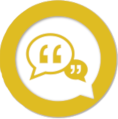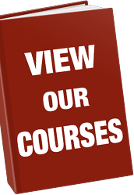
author blog
Welcome! Professional Development Courses is pleased to offer a unique opportunity to hear directly from some of the most well- known authors of educational books in the United States! Every few weeks a new author will be featured.
Meet the writers of the textbooks used in our most in demand courses! Authors of our most popular textbooks have written brief descriptions about the contents of their books and why they are relevant and applicable to today's 21st-century teacher. Find out directly from the author why these textbooks and accompanying courses will have a positive influence on your teaching and in your classroom. We hope this intimate connection will aid you in your journey to finding courses that will help you reach your professional goals.
-
Author: Jared Covili
Posted: February 4, 2019
Course(s): EDUC 717E Creating a Google Apps Classroom
Paragraph:
Greetings online learners! My name is Jared Covili and my book, Going Google, is part of the curriculum for a course offered at Professional Development Courses at the University of La Verne. I am currently a technology integration specialist at the Utah Education Network and taught workshops across the US helping educators use technology in their classrooms. I have spent the past twenty years in education and love seeing the impact that technology plays in learning. I hope the following information about my book is useful for teachers who wish to enroll in this course.
I wrote the book Going Google as a way to help educators and administrators tap into the amazing Google library of tools to help students learn in new and innovative ways. Google has been a leader in helping connect ideas and people, and its impact on the classroom is nothing short of revolutionary. As you read through the text, I share practical examples of classroom activities using a variety of the Google tools, and you'll learn even more as educators from across the world share how they are implementing Google in their own classrooms. Even though the tools may be updated and change from time to time, the concepts in this book will help you design activities incorporating essential learning skills like collaboration, creativity, and critical thinking. I hope you'll find something to help you in your classroom and beyond. Perhaps you too will find these tools will make you say you've Gone Google!
-
Author: Dr. David A. Sousa, Ed.D.
Posted: January 15, 2019
Course(s): EDUC 718B The Special Needs Brain: Helping it Learn, EDUC 717S Making Math Meaningful, Maybe Marvelous!, EDUC 718A How the ELL Brain Learns, EDUC 717W How the Brain Learns to Read: Decoding, Comprehension, and Motivation, and EDUC 718C Understanding and Teaching the Rewired Brain
Paragraph:
My name is Dr. David A. Sousa, and I am pleased that my texts are used in courses offered at Professional Development Courses at the University of La Verne. For more than 20 years, I have studied and implemented ways to translate brain research into educational practice. After all, teachers try to change the human brain every day. So the more they know about how the brain learns, the more successful they can be. The university recognizes the importance of including in its courses the findings from brain research. I have provided the following paragraphs about my books that are intended to be useful to teachers who take these courses.
EDUC 718B The Special Needs Brain: Helping it Learn
How the Special Needs Brain Learns, 3rd Edition: Brain research continues to reveal insights into the problems that can arise when people learn. I wrote this book to assist K-12 teachers in understanding the various categories of learning difficulties that affect students with special needs. I included important information, suggestions, and classroom-tested strategies that teachers can use to address different disabilities and to help these students become successful and motivated learners. Dr. David A. Sousa, Ed.D.
EDUC 717S Making Math Meaningful, Maybe Marvelous!
How the Brain Learns Mathematics, 2nd Edition: K-12 teachers often hear students say, “I can’t do math,” but seldom hear them say, “I can’t do language.” Yet both capabilities are pre-wired in the young brain. In this book, I explain in plain language how the student’s neural networks process mathematics. With this information, I suggest instructional strategies teachers can use that allow students to clearly understand and apply mathematical concepts. Dr. David A. Sousa, Ed.D.
EDUC 718A How the ELL Brain Learns
How the ELL Brain Learns: As the number of ELL students in K-12 classrooms continues to grow, teachers face the challenge of understanding their language needs. This book presents research on how ELL students learn a new language and offers research-based suggestions that teachers can use to develop instructional strategies to successfully meet those needs. I also include important new research findings that help teachers identify and support ELL students with learning disabilities. Dr. David A. Sousa, Ed.D.
EDUC 717W How the Brain Learns to Read: Decoding, Comprehension, and Motivation
How the Brain Learns to Read, 2nd Edition: Reading is probably the most difficult learning task we ask an individual’s brain to do. Using the latest findings from brain research, I explain in this book how young brains learn to make sense of printed language and how teachers you can use this information to reach students of all ages and skill levels. I included a chapter on how to teach for comprehension and one on strategies for helping students with dyslexia and older struggling readers master subject-area content. Dr. David A. Sousa, Ed.D.
EDUC 718C Understanding and Teaching the Rewired Brain
Engaging the Rewired Brain: Recent research suggests that children’s brains are being rewired by their constant interaction with technology, leaving educators questioning how instruction needs to change to successfully teach these digital natives. In this book, I give teachers the tools they need to address the changes in students’ attention systems, memory networks, thinking processes, and social skills, and show them how to adapt instruction to keep students motivated to learn. I recommend strategies to determine whether, when, and how to use technology, and how to launch the type of classroom that engages the rewired brain. Dr. David A. Sousa, Ed.D.
